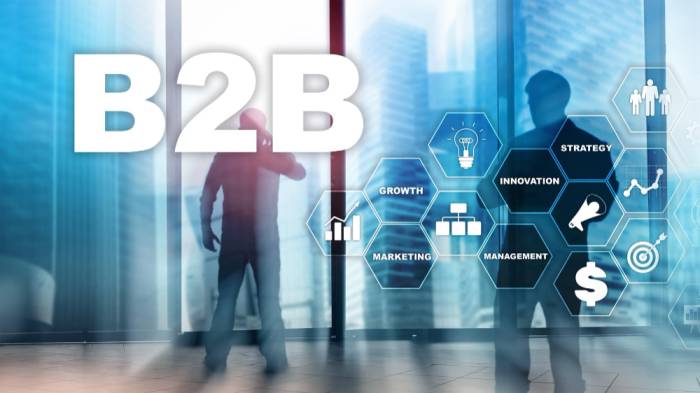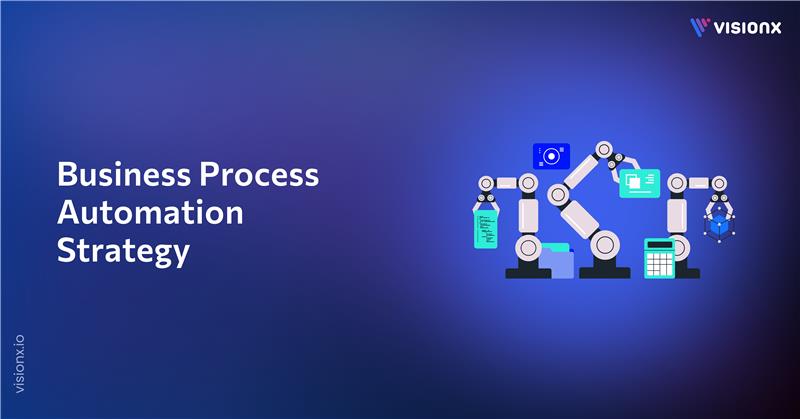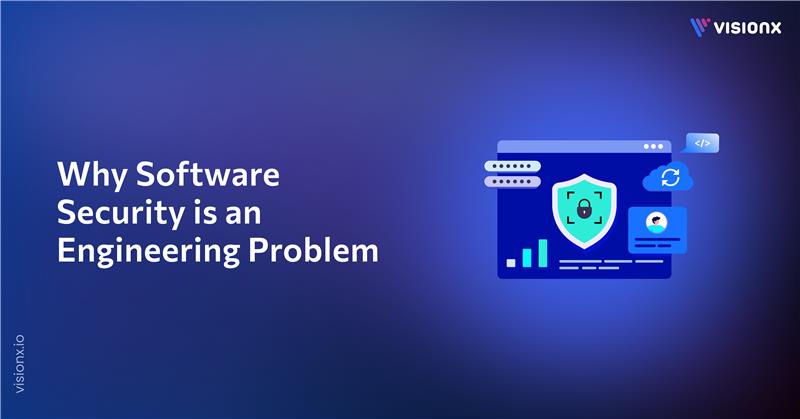Introduction
Businesses are using software solutions more and more in the modern digital era to improve productivity, simplify processes, and gain a competitive edge. The B2B SaaS (Business-to-Business Software as a Service) business model has become quite popular recently. This method, which offers scalability, cost-effectiveness, and flexibility, has completely changed how businesses buy and use software.
What is B2B Software?
B2B software refers to applications and platforms designed specifically for businesses. These solutions cater to various aspects of a company’s workflow, including customer relationship management (CRM), enterprise resource planning (ERP), human resources management, project management, and more.
Common use cases for B2B software include sales and marketing automation, supply chain management, data analytics, and collaboration tools. Industries such as finance, healthcare, manufacturing, and technology rely heavily on B2B software to streamline processes, enhance efficiency, and drive growth.
What is SaaS?
SaaS, or Software as a Service, is a cloud-based delivery model for software applications. Instead of purchasing and installing software on individual devices or servers, SaaS development services allow users to access and use the software online, typically through a web browser or dedicated application.
Key characteristics of SaaS include:
- Cloud-based delivery: SaaS applications are hosted in the cloud, eliminating the need for on-premises installation and maintenance.
- Subscription model: Users pay a recurring subscription fee (monthly or annually) to access the software rather than purchasing a perpetual license.
- Scalability: SaaS solutions can easily scale up or down based on the user’s needs, allowing for flexible and cost-effective resource allocation.
- Automatic updates: The software provider handles all updates and patches, ensuring users can access the latest version without additional effort.
What are the Benefits of B2B SaaS Products?
-
Cost savings:
With B2B SaaS, businesses can avoid the significant upfront costs associated with traditional on-premises software installations, such as hardware investments, perpetual licensing fees, and maintenance expenses. Instead, they pay a recurring subscription fee, which is often more cost-effective, especially for small and medium-sized businesses.
-
Scalability and flexibility:
B2B SaaS solutions are designed to be highly scalable, allowing businesses to easily add or remove user licenses as their needs change. This flexibility enables companies to scale their software usage up or down based on their evolving requirements without requiring extensive hardware or infrastructure modifications.
-
Accessibility and remote access:
Since B2B SaaS applications are hosted in the cloud and accessible via the internet, they can be accessed from anywhere with an internet connection. This benefit is particularly valuable for businesses with remote or distributed teams, enabling employees to access the same software and collaborate seamlessly from different locations.
-
Improved collaboration and integration:
Many B2B SaaS platforms offer integrated collaboration tools and seamless integration with other cloud-based services or apps. This allows companies to improve teamwork, optimize workflows, and build a more solid and effective software ecosystem.
-
Data security and backup:
Reputable B2B SaaS providers invest heavily in robust data security measures, such as encryption, access controls, and regular backups. These measures can provide businesses with better data protection and disaster recovery capabilities than managing these aspects independently with on-premises software.
-
Faster deployment and implementation:
Since B2B SaaS solutions are cloud-based and require no physical installation, they can be deployed and implemented much faster than traditional software installations. This allows businesses to quickly realize the software’s benefits without lengthy setup processes.
-
Predictable and flexible pricing:
B2B SaaS pricing models are typically subscription-based, with options for monthly or annual billing. This predictable pricing structure helps businesses manage their software expenses and budget accordingly. Additionally, many B2B SaaS providers offer flexible pricing tiers based on features or user counts, allowing businesses to pay for only what they need.
-
Reduced IT overhead:
By outsourcing IT services, businesses can significantly reduce the burden on their internal IT resources, freeing them up to focus on more strategic initiatives.
What is B2B SaaS Pricing Model?
The B2B SaaS business model combines the features of B2B software and the SaaS delivery model. In this model, software vendors develop and host applications specifically designed for business use and deliver them over the Internet on a subscription basis.
B2B SaaS companies generate revenue primarily through recurring subscription fees. Common pricing models include:
- Per-user pricing: Customers pay a fixed fee per user or employee who accesses the software.
- Feature-based pricing: Pricing is based on the specific features or modules a customer requires.
- Usage-based pricing: Customers pay based on their software usage, such as the number of transactions or data storage requirements.
The B2B SaaS industry has experienced significant growth in recent years, with a market size projected to reach $172.6 billion by 2025, according to MarketsandMarkets. Key players in the B2B SaaS space include Salesforce, Microsoft Dynamics, Workday, and ServiceNow.
Top B2B SaaS Platforms
B2B SaaS platforms are comprehensive software solutions that cater to various business needs. Some popular examples include:
1. Salesforce
Salesforce is a leading CRM platform that helps businesses manage sales, marketing, customer service, and more. Its extensive suite of cloud-based applications includes Sales Cloud (for sales force automation), Marketing Cloud (for marketing automation and campaign management), Service Cloud (for customer service and support), and more. With its robust analytics and AI capabilities, Salesforce empowers businesses to gain valuable insights, automate processes, and deliver personalized customer experiences.
2. HubSpot
HubSpot CRM is an all-in-one marketing, sales, and customer service platform for businesses of all sizes. It offers a range of tools for inbound marketing, lead generation, sales pipeline management, and customer relationship management. Its marketing automation features, which include social media integration, email campaigns, and landing pages, help businesses efficiently promote leads and increase conversions.
3. Zendesk
A customer service and engagement platform that provides omnichannel support solutions. Zendesk’s suite of products includes a help desk and ticketing system, live chat, knowledge base, and analytics tools. With its focus on omnichannel support, Zendesk allows businesses to provide seamless customer experiences across multiple channels, including email, phone, chat, and social media.
4. Zoho
A suite of business software applications covering CRM, project management, finance, and more. Zoho offers a comprehensive ecosystem of over 40 apps, including Zoho CRM, Zoho Projects, Zoho Books (accounting software), Zoho Desk (help desk software), and Zoho Analytics. With the help of this integrated suite, businesses can improve workflows and promote collaboration by managing all aspects of their operations from a single platform.
5. Microsoft Dynamics 365
A cloud-based business application suite that combines ERP (Enterprise Resource Planning) and CRM functionalities. Dynamics 365 offers solutions for finance, operations, sales, customer service, marketing, and more. Its integration with other Microsoft products, such as Office 365 and Power BI, provides a seamless experience for businesses already using Microsoft’s ecosystem.
These platforms typically offer a range of features and functionalities, such as:
- Customer relationship management (CRM)
- Marketing automation
- Sales force automation
- Project management
- Analytics and Reporting
- Collaboration tools
- Integration with other business applications
Implementing B2B SaaS platforms can help businesses improve customer experiences, speed operations, and obtain insightful data and performance.
B2B SaaS Market
The B2B SaaS market has experienced substantial growth in recent years, driven by the increasing adoption of cloud computing, the need for remote work solutions, and the desire for cost-effective and scalable software solutions.
According to a report by Grand View Research, the global B2B SaaS market size was valued at $101.5 billion in 2022 and is expected to expand at a compound annual growth rate (CAGR) of 12.5% from 2023 to 2030.
Some of the key trends and opportunities in the B2B SaaS market include:
- Artificial Intelligence (AI) and Machine Learning (ML) integration:
B2B SaaS providers incorporate AI and ML technologies to enhance automation, personalization, and predictive analytics.
- Vertical-specific solutions:
As businesses seek specialized solutions tailored to their industry, B2B SaaS providers are developing vertical-specific applications for industries like healthcare, finance, and manufacturing.
- Integration and interoperability:
With businesses using multiple software solutions, there is a growing demand for seamless integration and interoperability between various B2B SaaS platforms.
- Emphasis on data security and compliance:
As data privacy and regulatory compliance become paramount, B2B SaaS providers prioritize robust security measures and adherence to industry-specific regulations.
Despite these growth opportunities, the B2B SaaS market also faces challenges, such as data migration concerns, security and privacy risks, and the need for ongoing training and support for users.
B2B SaaS Examples
Several B2B SaaS companies have achieved remarkable success by delivering innovative and valuable solutions to businesses across various industries. Here are a few notable examples:
1. Salesforce:
One of the pioneers in the B2B SaaS space, Salesforce offers a comprehensive CRM platform that helps businesses manage sales, marketing, and customer service operations. With a strong focus on cloud computing and AI integration, Salesforce has become a leader in the industry.
2. Workday:
Workday is a leading provider of cloud-based enterprise resource planning (ERP) and human capital management (HCM) solutions. Their SaaS platform helps businesses streamline HR processes, manage finance and accounting operations, and gain insights into their workforce.
3. Zendesk:
Zendesk is a customer service and engagement platform that enables businesses to provide omnichannel support to their customers. Its SaaS-based solutions include features like ticketing systems, live chat, and self-service knowledge bases.
4. Atlassian:
Atlassian offers collaboration and project management tools, including Jira, Confluence, and Trello. Software development teams, IT teams, and project managers across various industries widely use their B2B SaaS solutions.
These examples showcase the versatility and impact of B2B SaaS solutions across different business functions and industries. Companies that have embraced B2B SaaS solutions have reported improved operational efficiency, enhanced customer experiences, and better data-driven decision-making.
Conclusion
The B2B SaaS business model has changed how businesses purchase and use software solutions. Through subscription-based pricing and cloud-based delivery, B2B SaaS providers provide scalable, reasonably priced, and easily accessible solutions that are customized to match the specific requirements of companies in a range of sectors.
Businesses must adopt this model as the B2B SaaS market develops to stay flexible and competitive. Implementing B2B SaaS solutions may improve cooperation, simplify processes, and extract insightful information from data, eventually spurring expansion and success.
When considering B2B SaaS solutions, businesses should carefully evaluate their specific requirements, assess the features and capabilities of various platforms, and ensure proper integration and data security measures are in place.


